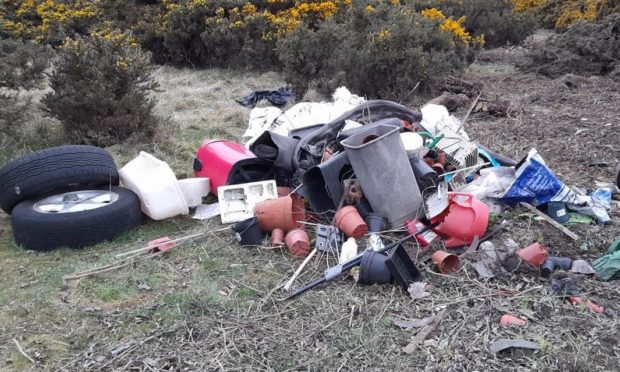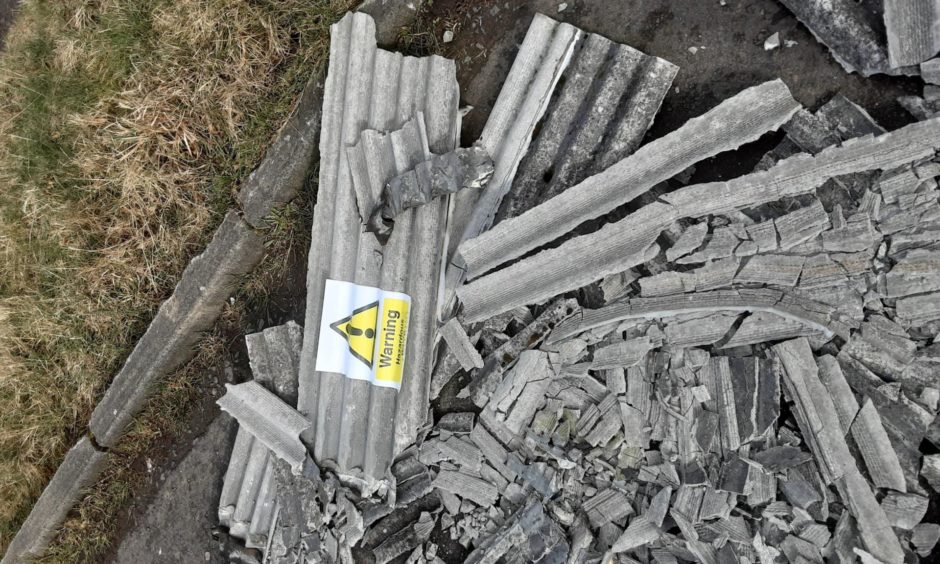Fly-tipping offenders should be forced to fund a new scheme to help clean up the mess, according to a Lib Dem election pledge.
The call comes after a probe revealed the extent of the problem across the country.
Councils recorded 127,625 incidents over two years, with spikes after the pandemic hit the nation and lockdown shut tips.
Fly-tipping peaked in Scotland as a whole in July 2020. However, councils in Courier country appear to have been experiencing long-term problems, with a clear spike in Perth and Kinross after lockdown.
There were 12,555 incidents in Dundee, Perth and Kinross and Fife between November 2018 and October 2020. Figures sent to the Lib Dems under freedom of information rules did not include results for Angus.
Lib Dem environment spokeswoman Molly Nolan said: “The costs for rural businesses to clear up fly-tipping can be punishing, so the costs for offenders should be too.
“There has clearly been an increase in incidents since the pandemic hit. From remote beauty spots to busy cities, fly-tipping is a widespread issue.
“It is destructive and can prove catastrophic for animals, plants and soil.
“The Scottish Liberal Democrats are committed to ensuring farmers get more help with the costs of clearing up fly-tipping and efforts are increased to catch tippers.”
‘Abhorrent crime’
The council breakdowns show there were 1,486 incidents in Dundee, 2,955 in Perth and Kinross and 8,114 in Fife.
Ms Nolan, candidate in Caithness, Sutherland and Ross, highlighted concerns raised by farmers’ union president Andrew McCornick in January.
He called the problem an “abhorrent crime” and called for more help to tidy up hazardous materials and food waste.
According to the Scottish Environment Protection Agency, the annual clear-up costs more than £2.5 million in urban and rural areas.
Lib Dems said their manifesto, published on April 16, commits to helping with costs.
The party wants to use the proceeds of a new “restitution order” which would allow courts to require a contribution from offenders.
In Scotland fly-tipping is controlled by the Environmental Protection Act, which legislates for legal disposal. Anyone found guilty of fly-tipping could be fined £200, potentially rising to £40,000 or a jail term.











